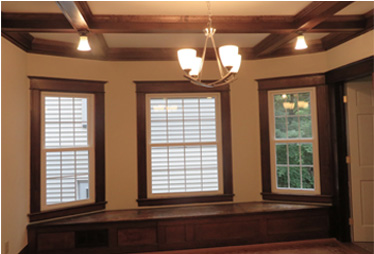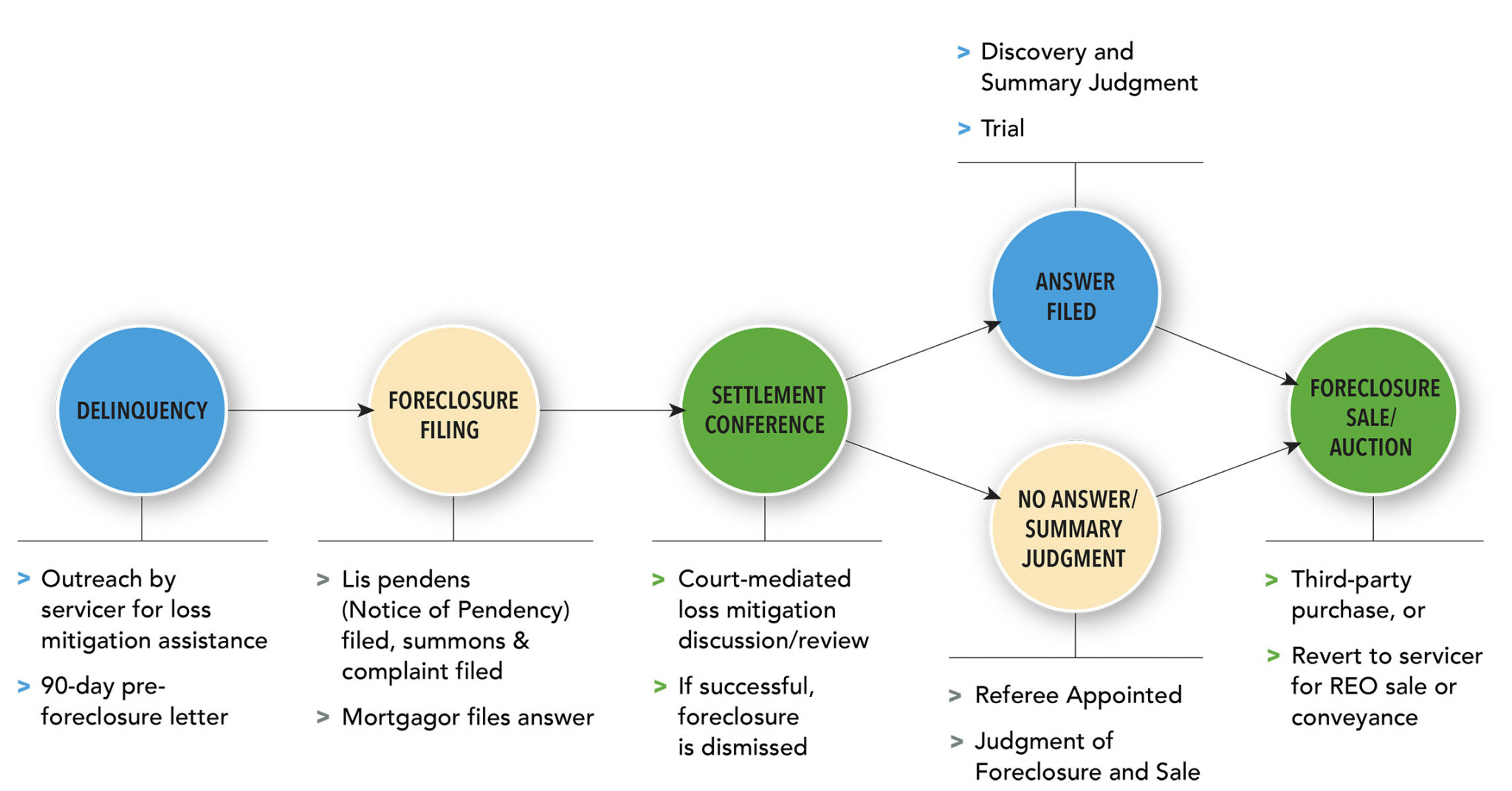
Help For Homeowners
Whether you’re a first-time home buyer, experiencing financial difficulties or facing foreclosure, struggling with home maintenance and repairs, or are looking to purchase and rehabilitate a home, there are many resources available for Monroe County residents. Learn more below about home purchase education, foreclosure prevention and the foreclosure process, home rehabilitation and maintenance assistance, estate planning, and more.

Real Estate

The Greater Rochester Housing Partnership (“GRHP”) and Rochester Housing Development Fund Corporation rehabilitate vacant homes and sell them to income-qualified first-time home buyers. Information about available homes can be found at www.homerochester.org.
The State of New York Mortgage Agency (“SONYMA”) that helps eligible owner-occupant home buyers purchase and renovate homes by providing assistance grants up to $20,000. More information can be found at www.hcr.ny.gov/neighborhood-revitalization-program.
The City of Rochester has its own real estate department that deals with all city-owned properties and the tax foreclosure auction. If you are interested in purchasing a City-owned property, contact the City of Rochester Division of Real Estate at 585-428-6951. The City real estate office can also provide information and support for residents and neighborhood groups looking to develop community gardens on vacant land. Additionally, the City houses the Rochester Land Bank Corporation, which has properties available for purchase. More information about the Land Bank can be found at www.cityofrochester.gov/landbank/
Monroe County’s Home Improvement Program (“HIP”) provides one-time grants and low interest loans to income-eligible homeowners for home repairs and improvements in the suburban towns and villages, excluding the City of Rochester and the Towns of Greece and Irondequoit. More information about the Monroe County HIP can be found at www.monroecounty.gov/planning-community
Homeownership Counseling
HOMEOWNERSHIP PRE-PURCHASE EDUCATION & COUNSELING
First-time buyers can learn the basics of the home purchase process, including credit, debt, and budget counseling, to ensure homeownership sustainability.
HUD Housing Counseling Agencies in Monroe County

Foreclosure Prevention
MORTGAGE DEFAULT & FORECLOSURE PREVENTION COUNSELING
Assistance is available for homeowners who are behind or having difficulties in making their mortgage payments and at-risk of foreclosure. Homeowners may also be referred for free legal assistance if needed.
At little or no cost, these agencies may be able to provide the assistance homeowners need.
HUD Housing Counseling Agencies in Monroe County
HUD Housing Counseling Agencies in Monroe County
HUD Housing Counseling Programs provide counseling and education to consumers on how to purchase, seek affordable financing, maintaining, renting or owning a home. Programs include first-time homebuyer, foreclosure prevention, including reverse mortgage counseling and post-purchase, home rehabilitation and landlord/tenant education and counseling. Services are provided by HUD Certified Housing Counselors and most services are low to no cost to the consumer. Please click on a link to get started with services from one of HUD’s approved housing counseling providers.
The Housing Council at PathStone

Mortgage Foreclosure Process
The foreclosure process in New York can be lengthy and complicated, but it has been designed to afford homeowners with protections and many opportunities to work with their mortgage servicer to avoid losing their home.
When mortgage payments are missed, a homeowner is considered in default of their mortgage loan and are at risk of foreclosure.. The mortgage servicer will reach out by phone and letter to discuss any financial hardships and review available assistance options, such as a temporary forbearance (an agreement to pause and then repay monthly payments), a repayment plan, or a loan modification (an adjustment of the terms of the mortgage loan). If the homeowner does not qualify for these options or does not wish to keep their home, the mortgage servicer can review for a short sale, which is when the homeowner is able to sell the property for less than what is owed (depending on the value of the property), or for a deed in lieu of foreclosure, in which the homeowner signs an agreement to give the property to the mortgage servicer rather than go through the foreclosure process. These are all called loss mitigation options. It is very important for homeowners who miss or are unable to make their monthly mortgage payments to contact their mortgage servicer to discuss all available options.
If a mortgage servicer is unable to contact the homeowner or if the homeowner does not request or qualify for a loss mitigation option and the mortgage loan remains in default, the mortgage servicer may file a foreclosure action, and the summons and complaint will be served upon the homeowner. The homeowner may file an answer with the court.
After the foreclosure process begins, the court will mandate a settlement conference, during which a court mediator will meet with both the homeowner and mortgage servicer to ensure all available loss mitigation options are reviewed. If a loss mitigation option is able to be approved and completed, the foreclosure action will be dismissed. Otherwise, the foreclosure action will proceed.
If the foreclosure action continues and the homeowner filed an answer, the case will go through the litigation process. Either through litigation, or if the mortgage servicer requests summary judgment, the court will review the facts of the case presented by both parties and determine the outcome of the foreclosure action.
If the homeowner does not file an answer, the court grants the mortgage servicer’s request for summary judgment, or the mortgage servicer prevails at trial, a referee will be appointed to determine the full amount owed to the mortgage servicer. Thereafter, the court will enter an order for judgment of foreclosure and sale of the mortgaged property. The sale date will then be set and is published in the newspaper and may be posted publicly.
At the foreclosure sale or auction, if a third-party is the highest bidder, they will become the owner of the property. If no one bids higher than the mortgage servicer, the mortgage servicer will complete a REO (real estate owned) sale of the property to an interested purchaser; however, if there is an investor or insurer with an interest in the property, the mortgage servicer may be required to convey, or transfer, ownership of the property to that investor or insurer.

Municipal Tax Foreclosure
Note: with the onset of the COVID-19 pandemic, the Federal Government and NYS have passed legislation putting moratoria on some foreclosure, including tax foreclosure. Due to these moratoria, neither Monroe County nor the City of Rochester are expected to complete tax foreclosure actions or conduct tax foreclosure sales before 2022. Please contact your local tax assessor or the City of Rochester or Monroe County Tax offices for further information.
Monroe County
Annually (typically in October), Monroe County holds a foreclosure sale of tax delinquent properties that have progressed through a 28-month foreclosure process. In mid-August, a list of properties with unpaid taxes that are eligible for foreclosure is published in local newspapers (Rochester Business Journal and Daily Record), as well as on the Monroe County website. At anytime during the 28-month Foreclosure Process, if certain requirements are met, a payment plan can be negotiated by the owner to keep the property out of foreclosure. To negotiate a tax agreement or pay off a lien, an owner should contact the Monroe County Treasury Department. Other factors that allow removal of a property from the foreclosure process include: a full redemption of the tax lien;
an active bankruptcy filing by the owner; a removal ordered by a court, or; legislative approval obtained at the request of the Director of Finance.
The Director of Finance may request legislative approval to remove a property from the foreclosure process if: a person with an interest in the property has raised a question as to the validity of the tax lien on the property; the tax district has instituted other proceedings to enforce the lien using other statutory methods; an eligible owner has entered into a repayment agreement, or; the tax lien is on a property that is known or suspected to be a hazardous waste site.
Commencing in May of Year 1 and usually ending in October of Year 3
| Month | Year No.1 | Year No.2 | Year No.3 |
| January | Send out tax bills | ||
| February | Payments in full are due on or before 2/10 or installment payments can commence | MC sends out 7th delinquency notice | |
| March | |||
| April | If payments are in installments, last installment payment is due | ||
| May | The foreclosure process starts MC sends out a statutorily required 1st delinquency notice | ||
| June | MC sends 5th notice | Either June or July (depending on sale date), outside attorney will send a delinquency notice | |
| July | MC sends out 2nd delinquency notice | See June | |
| August | 8/15 – List of properties with unpaid taxes must be published 8/20 – Unpaid taxes are declared delinquent | 8/15 List of properties with unpaid taxes must be published for the 2nd time Since taxes have been delinquent for one year, the properties are eligible for foreclosure | |
| September | MC sends out 3rd delinquency notice | MC sends out 6th delinquency notice | Schedule foreclosure sale |
| October | |||
| November | Foreclosure sale | ||
| December | MC sends out 4th delinquency notice |
City of Rochester
Annually (typically in November), the City of Rochester holds an “In Rem” tax foreclosure auction for properties where the respective owners have delinquent taxes. A tax lien becomes delinquent when taxes due are unpaid for more than one year, and foreclosure auctions occur approximately 16 months after a tax lien becomes delinquent. A list of properties that may be available at the tax foreclosure auction is published in a local newspaper approximately a month prior to the auction. This list changes as existing owners are able to pay their delinquent balances, up until the time the property is auctioned. Owners with delinquent property taxes may also be eligible to enter into a Tax Agreement with the City to repay the taxes through an agreed upon payment plan and thereby avoid foreclosure.
Individuals who are interested in bidding on a property at the tax foreclosure auction, with the remaining must register for the auction and must have adequate funds for a deposit the day of the auction, with the remaining balance due shortly after. Current owners with delinquent taxes may not bid on their own properties and may not have others bid on their behalf. If there are no successful bidders through the auction process, the City takes title to the property. More information can be found at https://www.cityofrochester.gov/TaxForeclosureAuctions/.
Typical foreclosure timeline for property taxes more than a year delinquent:
| Month | Action |
| February | Treasury compiles list of properties with taxes delinquent for more than one year |
| March | Treasury sends warning letter to property owners |
| April | Law Department commences foreclosure action, files list with County Clerk’s office |
| April/May | Public notice of foreclosure published in newspaper |
| August | Notification to property owners and lienholders |
| September | Lienholders may redeem or file a Notice of Interest |
| October | Treasury sends final foreclosure letter City obtains Judgment of Foreclosure and Sale |
| October-November | Four consecutive legal notices for foreclosure sale published in newspaper |
| November | Tax foreclosure auction – opening bid is amount of unpaid taxes; if City is the only bidder, City takes title |
Home Rehabilitation and Maintenance Assistance
HOME REHABILITATION COUNSELING AND ASSISTANCE
Home rehabilitation counseling can help homeowners learn about and address home maintenance plans, strategies for energy efficiency, promoting a healthy living environment, and available grant and loan programs to repair or rehabilitate a home. Programs and grants are subject to change and funding availability.
Rehabilitation/Maintenance Grant & Loan Programs
Monroe County Home Improvement
Greater Rochester Housing Partnership
PathStone Weatherization Assistance Program
PathStone Home Rehabilitation and Energy Services
NeighborWorks® Community Partners, Rochester
Marketview Heights Association
Wills and Estate Planning

Families and homeowners may experience difficulties when planning for the future. When after-life planning is incomplete, families and heirs struggle to establish rightful ownership of a property. This can lead to difficulties in working with mortgage servicers, avoiding mortgage foreclosure, refinancing a mortgage, and securing home repair and maintenance grants and loans, among other issues.
Please visit our legal partner at vlsprochester.org for more information, assistance, and available services.
Purchase a Vacant Property
If you are looking to purchase a vacant property, you can research its history and status through the Monroe County Clerk’s office. If the property is located in the City of Rochester, the City’s Property Information System and Building Blocks website may also provide pertinent info. If a property is owned by the municipality or a by a bank, you may reach out to them to find out if it’s available for purchase. A realtor can assist you with the purchase process for privately-held vacant properties.


